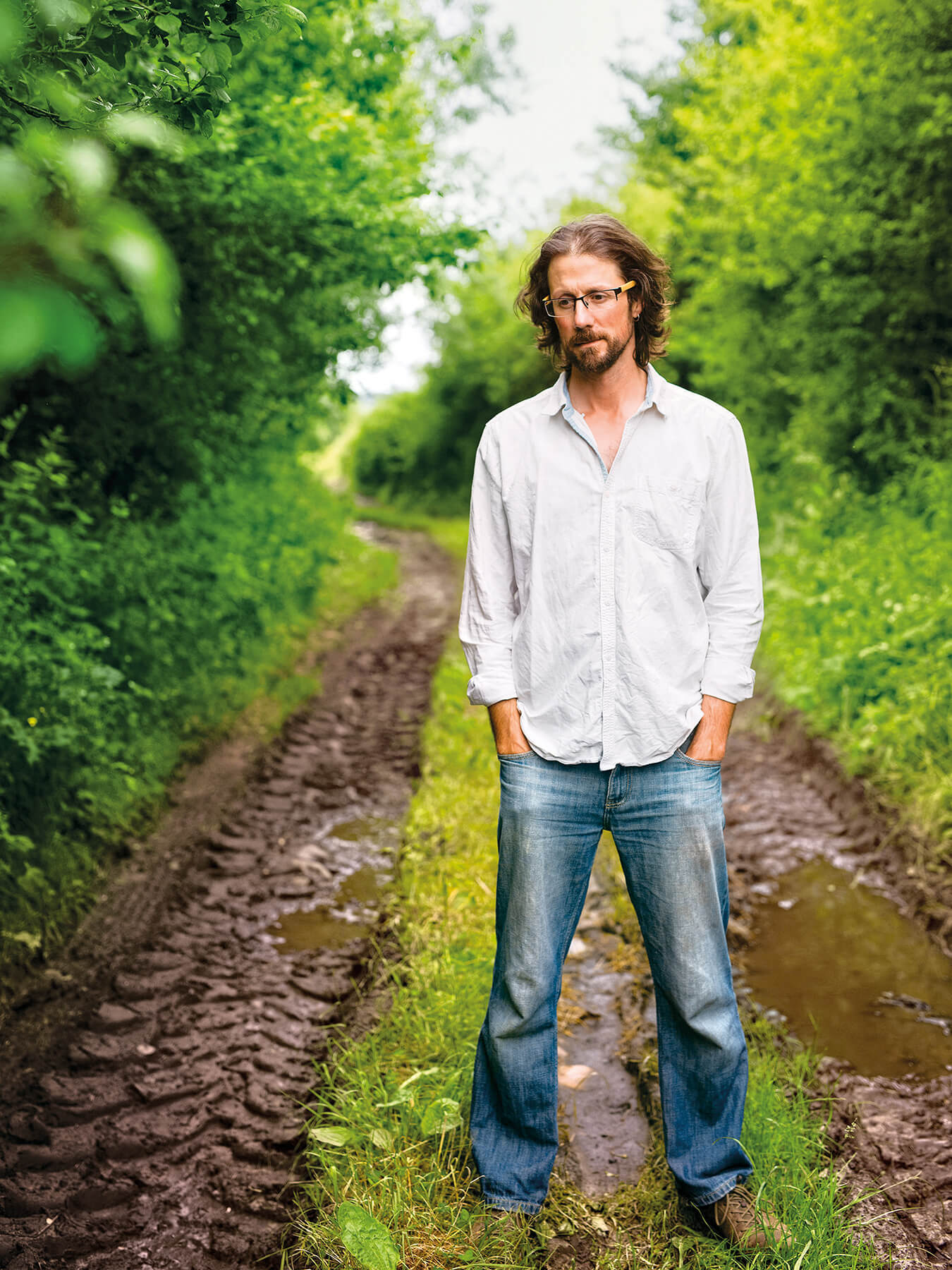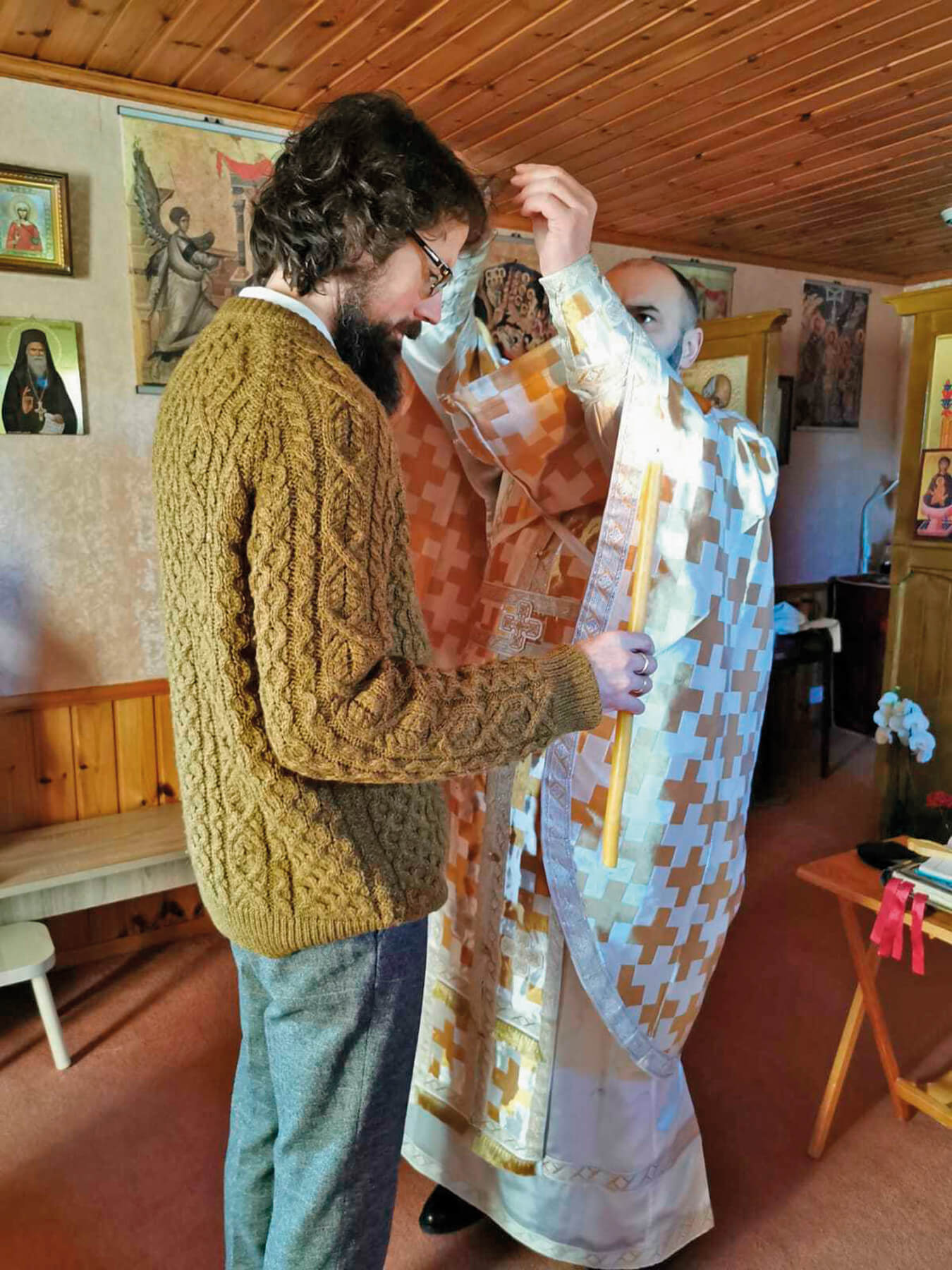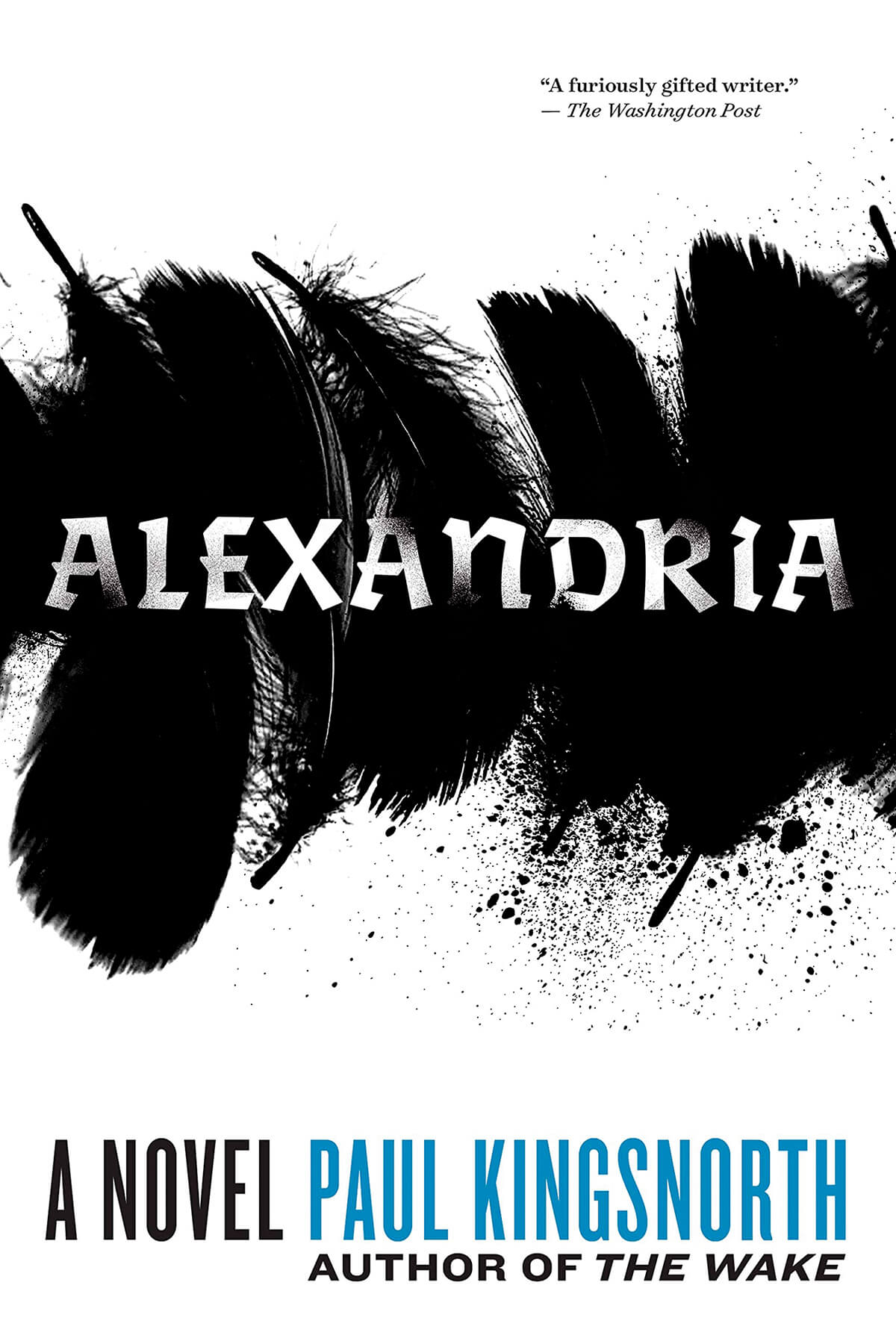This year, on the feast of Epiphany, Paul Kingsnorth, author of some exceptional novels and former eco-activist, was baptized in the Romanian Orthodox Church at the Romanian monastery in Shannonbridge, Ireland. In an interview discussing ecology, technology and Orthodoxy, he confessed he felt at home in Orthodoxy. Paul Kingsnorth was born in 1972 in Worcester, in the South East of England. He has married a Sikh Indian woman with whom he has two children: Leela and Jeevan. They have lived in Ireland for a few years now, where they run a small farm and homeschool their children.
Tell us about your family roots!
We come from a county called Kent. I grew up when I was a child in outer London. So my family lived in the South East of England for a long time. My grandmother on my father’s side was actually from Greek Cyprus. She was Orthodox in fact, which is interesting to me. I still have relatives in Cyprus that are Orthodox. I moved to Ireland, which is where I live now with my wife and two children. My wife is from an Indian family from Punjab. I’ve always loved nature and I’ve never felt comfortable in big cities. I want to be surrounded by peace and quietness. We have some land and animals and we grow food, hiding away from the worst parts of the world. We came here because we wanted to live in a different way. We wanted to teach our children at home because family is quite important to us.
Have your children experienced some years in a normal school?
My daughter is turning thirteen so she’s going to start secondary school. But my son is still learning at home. He’s never been to school. We’ve always said to him: "If you want to go to school, you can go”, but he’s never wanted to. He is ten now. My daughter’s name is Leela and my son’s name is Jeevan, which is an Indian name. My wife’s name is Navjot. She was brought up in England, like me, but her parents are Indian.
Are they baptized too?
No, my family are not baptized. My grandparents may have been, but not my parents. My daughter may be soon, we’ll see. You see, it’s a journey, so we’ll see what happens. Nevertheless, every time I go to the liturgy, they come with me. They know my priest and the people at the monastery.
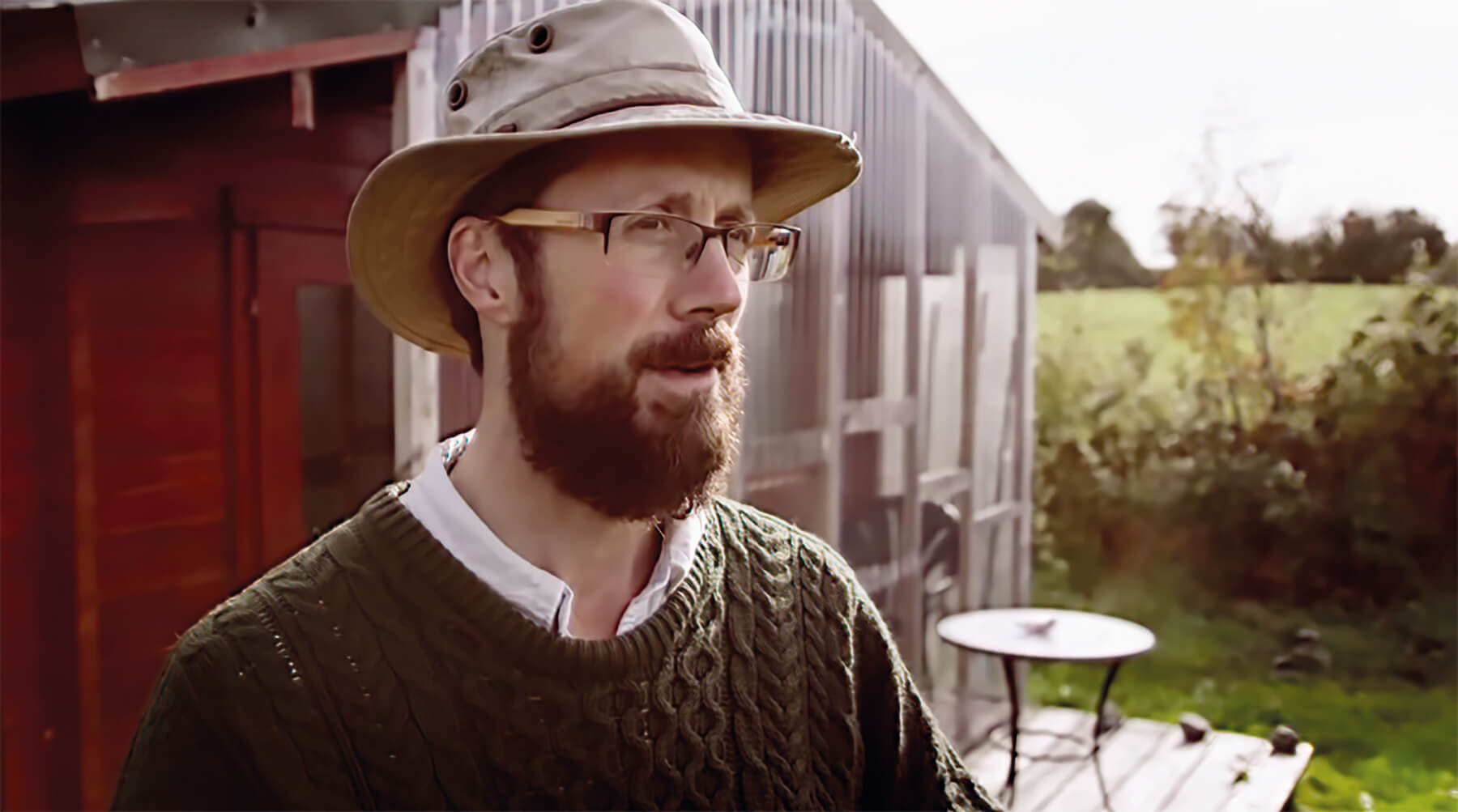
The Church teaches that man was left as a steward of all creation; have we assumed this role or failed to do so?
To me it’s about relationship: instead of looking at nature and seeing a living tapestry of many different beings that we have to have a good relationship with, we see it as a collection of resources that we can use at our leisure. In any traditional society, in any indigenous society, or any pre-modern European society, people didn’t behave like that. They didn’t take too much. They tried to live in some balance with nature. It’s what Christ teaches us; it’s about simplicity, humility, poverty and the problem of wealth. This is what happens when you try to pursue wealth: you end up destroying creation, and that’s where we are. You can’t look around the world and think we are being good stewards of it at the moment.
The ecology issue as a symptom of spiritual crisis
You labeled yourself a recovering ecologist. What does this mean?
It was quite a long time ago, maybe ten years, when I wrote an essay about recovering from environmentalism and moving away from campaigning, realizing that a lot of it didn’t work and trying to see the bigger picture. I’ve been on a journey since then. I didn’t realize it was going to be a journey to Orthodoxy, but that’s where it led me.
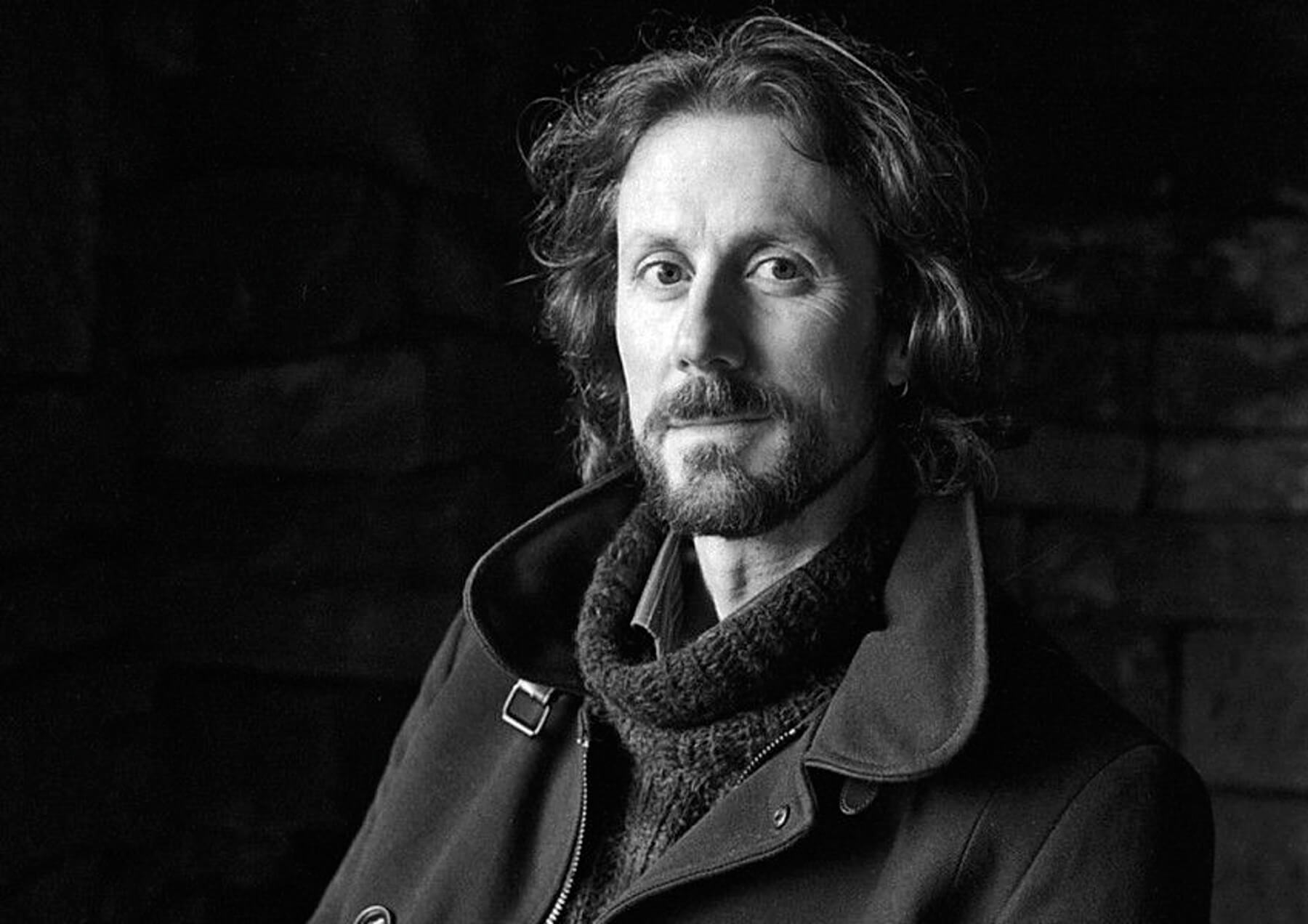
How do you relate to ecology now?
I was an activist for a long time, a campaigner, but not anymore because I realized that a lot of the campaigns don’t work. I don’t have a relationship to the ecology movement anymore, but my connection to nature is the same.
You have mentioned that the campaigns do not work. Why do you think it is so?
I think the climate is changing and there is nothing to stop that from happening. Therefore, we have to figure out how to live with it. It doesn’t mean that we should do nothing, but it does mean that some things are more realistic than others. One of the things that led me to Orthodoxy is the fact that I see the modern world is in a spiritual crisis and the problems with ecology and climate change are part of that, they’re a symptom of the crisis. The solution to them, in my opinion, is a spiritual solution. It is related to our way or life, to our relationship with God, with everything created and with each other. These are topics that cannot be brought up in the ecology movement. People are being very practical, political and scientific, but I don’t think that is actually the point of what is happening. I believe this is why I have been drawn in another direction.
What would you say to someone who’s young, realizes this problem and wants to make an impact?
People get very committed to political change, it doesn’t happen, and that can lead to a lot of anger and difficulty for them. You can be an activist, that’s good, but just be clear about what you’re doing and why you’re doing it and whether it will work. Action is good, but it has to be action that leads to real change and not action that will be futile.
How can an action produce change?
I think that the more local an action is, the more likely it is to succeed. If you’re trying to stop the whole of the world from burning fossil fuels in ten years, you’re not going to do that. You might be able to persuade your government to do something and you’ll definitely be able to do something in your village, or your town, or your family, or your monastery.
However, in the end you have to start with yourself...
Absolutely, and that is why spiritual change is right. It’s the spiritual battle in everybody. If you don’t know yourself and you don’t know what’s driving you and what’s happening inside you, you can take your own brokenness out into the world. You see a lot of problems and you think they’re all outside you and some of them are, but a lot of them are inside you. Many people involved in activism don’t see their own spiritual brokenness and they take it out into the world. They think that what makes them so unhappy is the government. That can be very damaging. It took me a long time to work it out. I’m not talking about anyone else, I’m talking about myself.
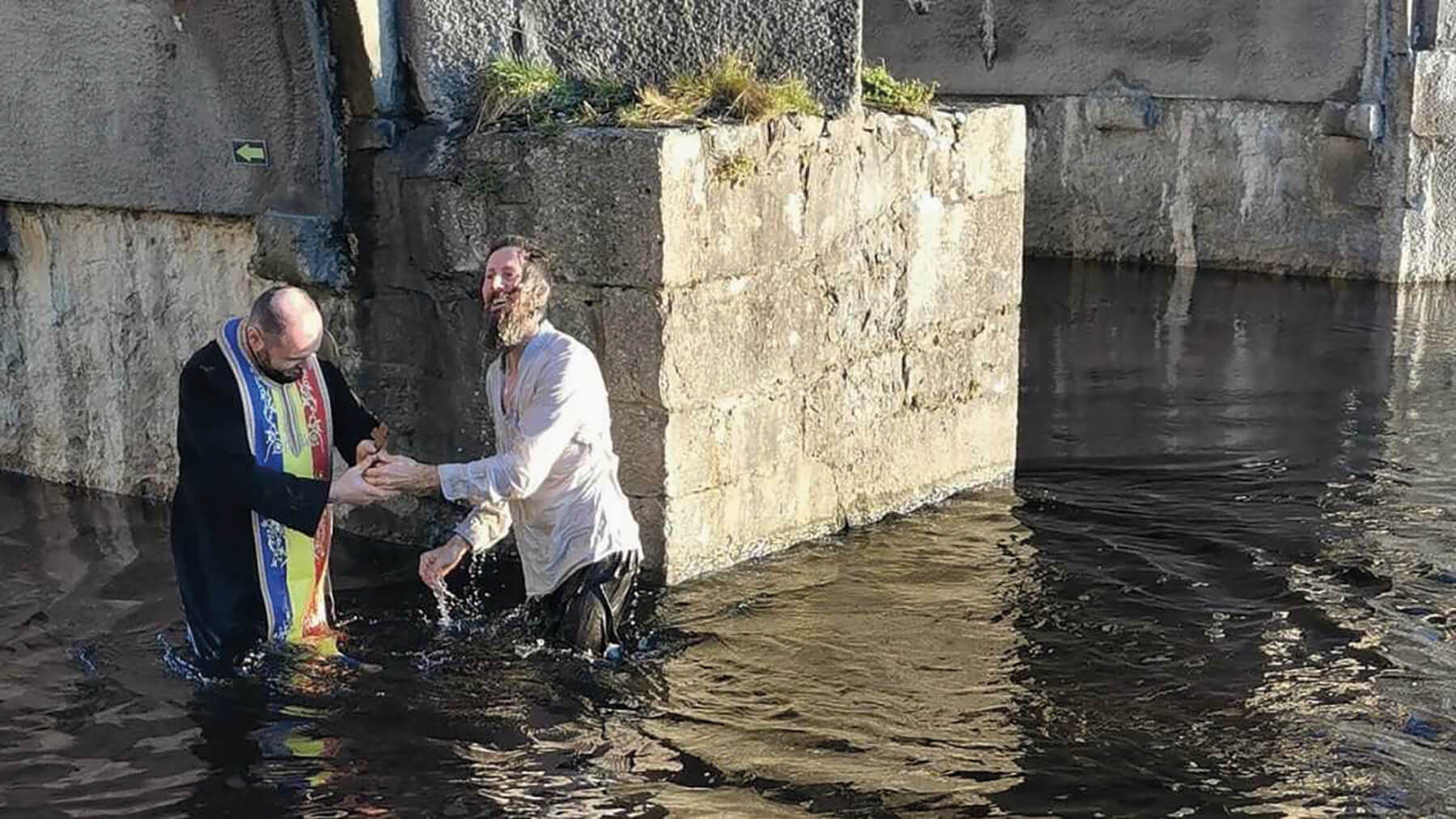
How can a spiritual crisis affect the ecological crisis?
I think we are out of relationship with each other and we are out of relationship with nature. If we were to follow the teachings of the Sermon on the Mount we would not have climate change. You could not be in this situation if you were trying to do what Christ told you, to live the way He taught you to live. It took me a long time to realize that the root of it is a spiritual root. We don’t pay any attention to these teachings because we don’t believe in them anymore. And we don’t believe in God either, we don’t believe in anything except humans, man at the center of everything. And we are feeding the passions all day long. That’s what we do, that’s what the economy does, doesn’t it? The solution to the crisis is to do the opposite of enflaming the passions. It’s a very hard solution and who wants to do it?
We have built a society that has a big hole in it and that’s actually the problem we have to face. I think more and more people are seeing that, especially young people. They’re looking around and they’re saying that something very big is missing from this culture.
They feel that there is something missing but they have no guidance?
That is true. I have talked to young people and the values that they’re given to grow up with are nothing but the values of growth, progress and money. That’s all they have, and those don’t even work anymore.
As the philosopher René Gerard said, "Modernity creates needs that people don’t need”...
This is what economic growth is based on. It’s been so interesting to me to come to Orthodoxy and to read the Desert Fathers and about the passions and to think "Oh, well, our whole modern economy, the whole of modernity is really based on inflaming the passions and following the seven deadly sins and trying to commit all of them”.
Rediscovering Christianity: Orthodoxy feels like home
It seems the first part of your life has taught you a lesson on humility, on the limits of man. Do you feel humbled by the path you took? Was it necessary to be humbled before you could accept God in the Orthodox manner?
I’m nowhere near as humble as I should be. But I am more humble than I used to be, so that’s something. When you are an activist, you want to change everything and you think you can.
You end up thinking that you have to recreate the world, you have to build the world better than it is, and you have to control it and manage it. But the early green movement was about limits. It said to people: you have to live within limits, you have to live small. People like Tolstoy or Gandhi were, in a way, the inspiration. In some ways, it’s quite monastic actually. It’s about living simply, living in community, and respecting nature. A lot of the green movement, unfortunately, has forgotten that and thinks that the problem can be solved with technology. We have to be humble with ourselves and with nature. We have to live with a lot less. Unfortunately, I think most people are not willing to do that.
Who were the most inspirational people in your life?
Well, the people I’ve met who’ve always been most inspiring are the people you’ve never heard of. It’s what they say about the saints, isn’t it? But God knows them because they’re the ones doing the real work. Some of the best saints in God’s eyes are the ones that none of us have ever heard of, because they were doing their work so quietly. But ever since I came to Orthodoxy some people like Saint Porphyrios have really inspired me and Saint Sophrony has been quite an influence on me. Obviously, Father Seraphim Rose: for people like me, he is always a good inspiration, because he’s as a patron of lost Western people who come to Faith, who go searching everywhere else before they find Orthodoxy.
You seem very knowledgeable on other religions. What made you choose Orthodoxy? Do you feel it was the Holy Spirit that guided you? Can you explain how, with all the diversity, you’ve chosen this alternative?
I believe I was guided to it. I mean, it’s partly choice and partly isn’t choice. If I allowed myself to be guided only by reason, then I wouldn’t be Christian, because I don’t think you can rationally be a Christian. You can’t rationally be a follower of any religion actually, because religion is beyond reason. I was looking for the truth, but I didn’t look in Christianity because I didn’t think I’d find it there. But that was where I found it.
When I became a Christian, I thought "I need a church. What is my church?” So I did a lot of praying and I discovered that I live very near the Orthodox monastery that’s just opened in Ireland. The first one, so I went there. I was praying to God for a long time just to bring me a priest. I said, "If You want me to join a church, find me a priest”. I set a bit of a challenge and I met a priest at the monastery and I got talking to him and he’s my confessor now. Father Tudor Ghiță is my priest over here; so this is the Orthodox monastery of the Life-Giving Spring over here in Ireland, which is where I discovered Orthodoxy and was baptized.
The more I read about Orthodoxy the more I thought "There’s something in here that I’ve never seen in Christianity before”. I went along to the monastery and I thought, "I’m not sure if this will be for me, because I’m not Romanian and maybe I won’t fit in anywhere and it’s a bit of a foreign religion, but I’ll go along and I’ll see”. It was a very powerful experience and the people are very friendly, they were very welcoming to me.
The more I went to the liturgy and the more I read, the more I realized that there’s a deep mystical path in Orthodoxy that you don’t find in Western Christianity. There’s also the power of the liturgy, there’s no ritual like that in Western Christianity because when we had our reformation, we took all the ritual out. We got rid of the monks, and we got rid of the nuns, and we got rid of the Mother of God and we got rid of the Saints, and we just had a church which is a building and you go to read the Gospel in it and you listen to prayers and something very big is missing.
I hadn’t realized that Christianity was the kind of mystical path that Orthodoxy offers. So it was almost like I discovered Christianity anew by looking at Eastern Christianity, which has, I think, preserved something that we have given away in the West. I think that, until you look to the Orthodox faith, you don’t really realize what’s been lost in the West; because we used to have this too, right? Everybody was Orthodox once. England was Orthodox, and Ireland was Orthodox, everybody was of the Church. So, when I saw that, I thought, "This is where I’m supposed to be”. It felt strangely like coming home, even though in many ways it’s quite foreign to me, it felt very much like coming home, actually.
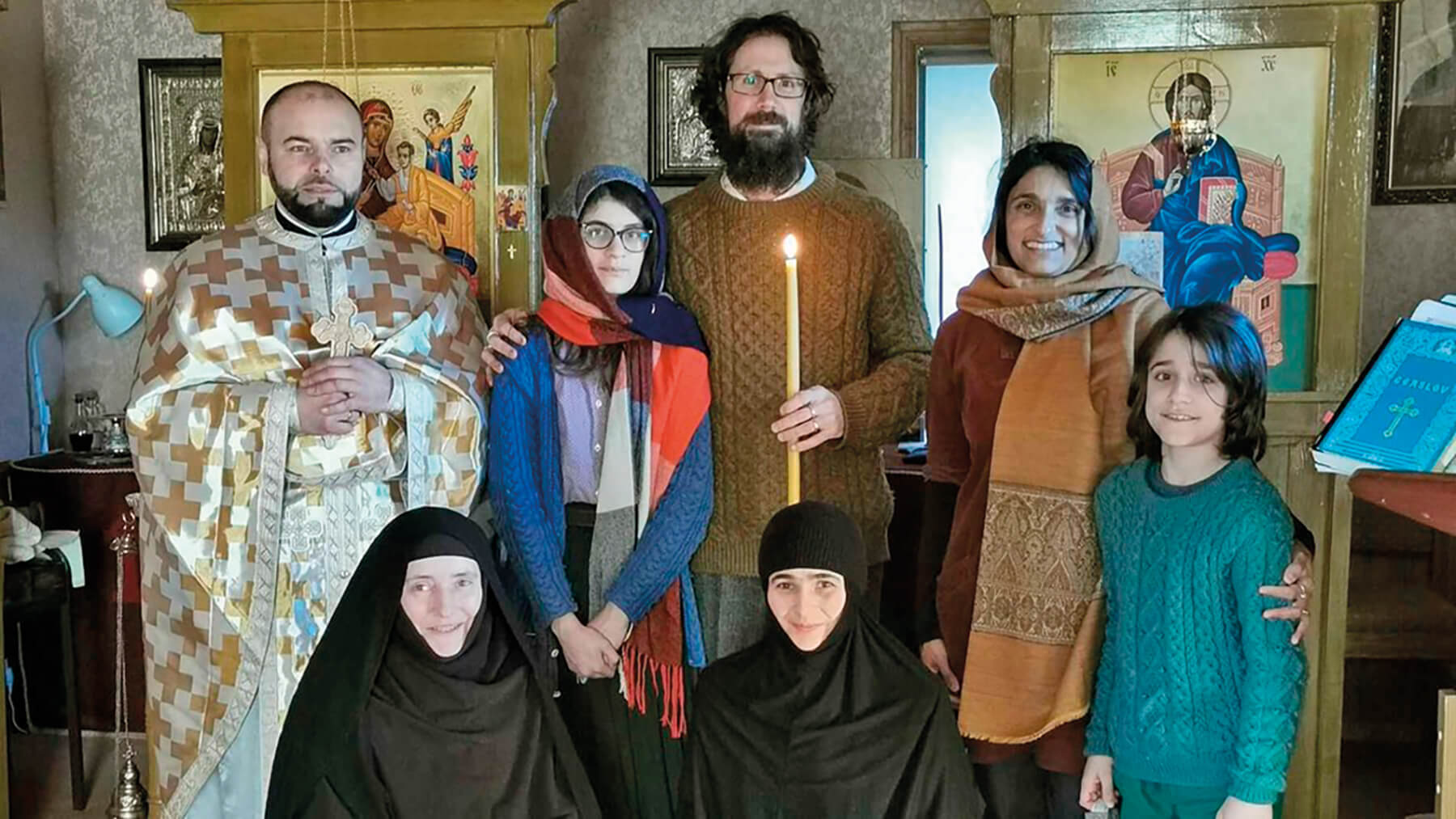
The truth doesn’t mean anything if you’re not living it
It’s one thing to be aware of the truth of Orthodoxy and another to assume the Orthodox way of life. What determined you to fully assume Orthodoxy in your life?
It was because I was really looking for the truth. Like Seraphim Rose, I also got to the point where I just thought, "I need to see the truth”. And when I found it, "I’m going to do it properly”. It’s not an intellectual exercise anymore. I feel like I’ve met Christ and because I met Christ I was led to the Church. I think that the truth is in this Church; and if that’s true, then I have to live that way. The truth doesn’t mean anything if you’re not living it. It’s just like you say, it’s just ideas. So, I had to do it, and I wanted to do it, I wanted to live differently, I wanted to be challenged and I wanted to be changed. I said to God, "You can change me any way you want. It’s fine”. "Your will be done”, and, strangely enough, I’ve enjoyed it.
How do you feel in Church? What does the Church mean for you?
It’s a community and the Church here has been very welcoming to me. Most of the parishioners are Romanians, but there are also English people, Irish people, people from Georgia, and others who come from elsewhere. It’s a very welcoming place, but it’s mainly the place where I go to meet Christ. The liturgy is still very-very new to me and it’s very powerful to me and every time I go, I learn something new. When I go, something powerful happens that I can’t explain. Every time I go, I think it changes me somehow.
How is your relationship with your spiritual father? How important do you think is such a relation in general?
It’s very good. He’s a very nice man, very interesting and funny. I like him a lot, he’s very down to earth, very practical and very good trying to get me to calm down. I always want to go full speed, and he’s always saying: just take it easy, there is a lot of work to do, don’t rush, don’t get carried away, don’t think you are going to become a saint in two weeks. And that’s very good. It’s one of the things I was really looking for. He’s very useful, because one of the things I needed was a real spiritual guide. I wanted to go into the Church and to have somebody to guide me, because you can’t do this on your own, obviously. That’s why we have a Church at all. There’s still a lot to learn but, yes, he’s very good. He knows exactly what I should be doing and I can always check with him if I am not sure what I am supposed to be doing today.
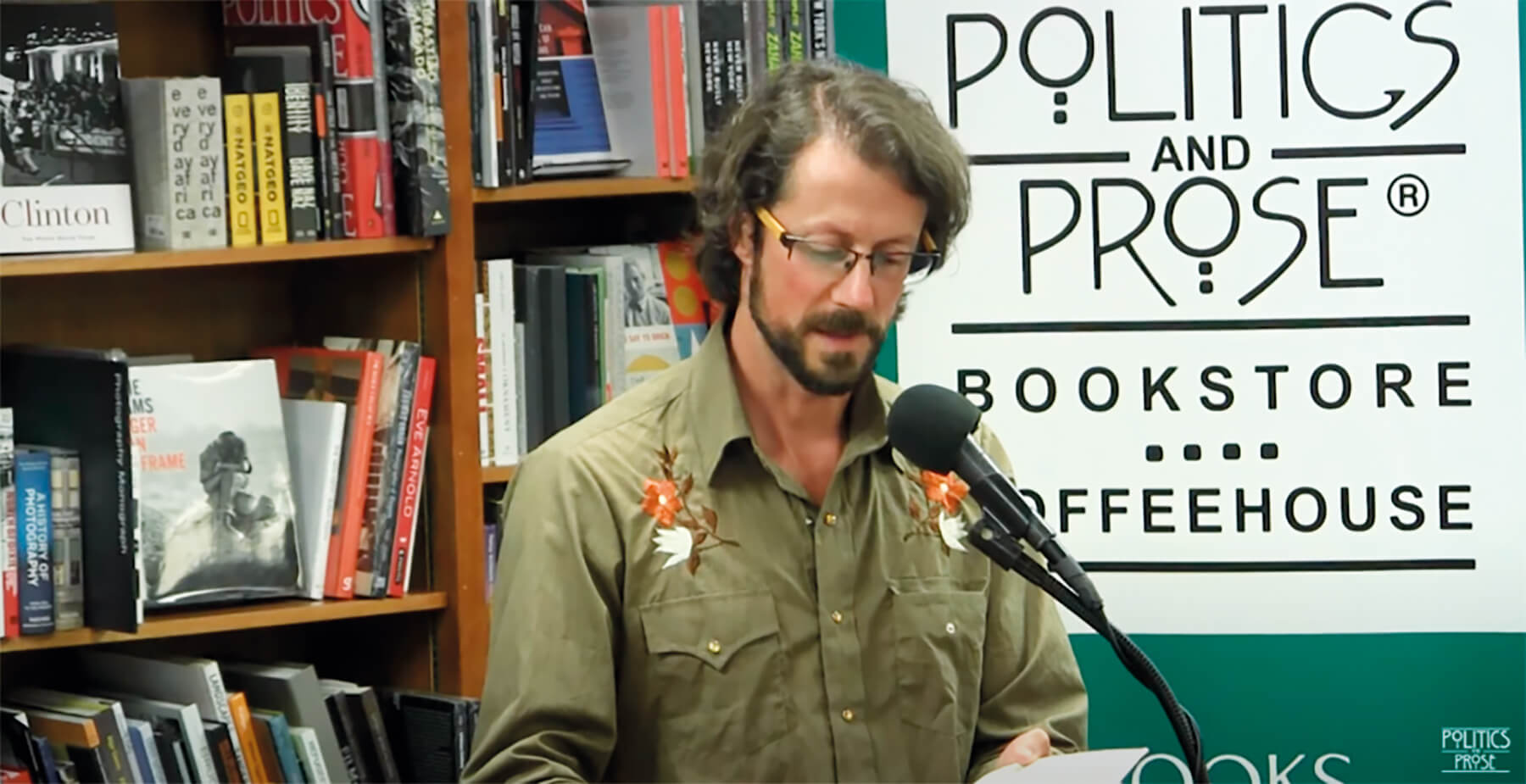
How do you pray?
I am praying three times a day. I am using the Prayer Book, so I am praying in the morning, in the evening, and at midday and I am doing 50 prostrations a day... No, I am doing 100 prostrations a day. My priest has been increasing the number so it’s going up slowly. So, I have my prostrations, I have my prayer rule, and I say the Jesus Prayer as much as I can when I am working. I’m trying to get into the habit of doing that as often as I can. I can’t imagine not doing it now. I can’t remember a time when I wasn’t praying regularly, and even though it wasn’t that long ago, it feels like something I should have been doing much earlier.
What changes do you think most shocked or most impressed your family after your conversion?
It hasn’t changed my relationship with my family except hopefully for the better, because I am trying to be more patient and humbler than I was before. My wife was very impressed with my ability to be vegan for 40 days, which she never thought would be possible. I didn’t think it would be possible either, but there we are.
Religion has simply become a central part of my life and I think it has to be like that if you are following it. It has to be the central part of you. It’s the arrival at a place where faith is central to life, which I have never felt before. That’s what I meant when I said it feels like I have come home. That’s the most important discovery: that you put it at the heart of everything and hopefully it guides you in the right direction.
What did your kids say about this?
They are very supportive. I was baptized on my son’s birthday. My son was born on Theophany, and I was baptized on Theophany, so he came along to the baptism on his birthday, which he didn’t really want to do, he wanted to stay at home and play with his Lego, but he was very nice about it. My daughter considers herself to be a Christian as well. She hasn’t been baptized, but she is very much interested in it, so I hope that she might be at some point. It’s very much a family thing. The children come to the Liturgy with me and we are trying to make it a central part of the family. I think it’s very important for kids to grow up knowing what Faith is. I want to bring them up so that they know what it is, because I think that it’s more important than ever at the moment. I think people are going to need it.
So, you take your children to the Liturgy?
Yes, I do, and they manage to stand up all the way through it, which I am very impressed by.
And your wife?
Yes, she always comes as well. It’s very nice! One of the things I like about the Romanian Church in Ireland is that it’s very family-focused. It’s very much a community-family thing and that’s important, I think.
Technology: Building the tower of Babel again
You declared yourself as anti-technology. What does this mean?
I’m not against technology, but I think technology is a trap for us. We’ve convinced ourselves that the way to solve our global problems is to advance technology. It won’t solve them, it will just trap us deeper into this network of machines which we’re already dependent on. It’s like living in a science fiction novel sometimes. You know, it’s going to get worse, we’re moving towards artificial intelligence, trying to recreate the human mind. I think it’s quite demonic.
Once we start talking about uploading the human mind so that we can live forever, I think we’re in dangerous territory. Nevertheless, that’s the direction society is moving in.
Why do you think it’s demonic?
It seems to me literally anti-Christ. I think that this means playing God. I mean humans, here we are, we eat the apple, and we fall, and we take control of the world, and we try to be better than God. This is like building the tower of Babel again. We think that we don’t need God anymore, that we don’t need the Kingdom of God, because we can upload our minds and create our own kingdom, and that’s what we’re doing. We’re creating a fake life, and one of the reasons is that we think we can create a world with no pain, a second life where things will be easy and there will be no difficulty. But there’s always difficulty. And there are no teachers to help us learn how to overcome the pain, how to work with the pain of being human, and how to turn that into a spiritual path. Carry your cross! We don’t even think like that anymore. We try to escape.
How are technology and trans-humanism related?
Trans-humanism is a way to escape body and nature. What the trans-humanists want to do is to create an entirely artificial world, where we can have artificial bodies and minds. The aim of all of this "Silicon-Valley” direction of life is to recreate a new world from human hands. To create new humans, new animals, a new environment for them to live in, to rebuild the world according to what we want it to be. They’re trying to create perfection, to build heaven on earth. They’re trying to alter nature, alter the Creation, until it is right. They try to iron out all the problems that they see. That doesn’t work, it never works. All it does is create more problems.
What problems?
We don’t know, do we, until we do it? ...and then you’ve got another problem you have to solve, with a different kind of technology. It goes on and on. The chain is growing and you can’t escape from it after a while. Because you haven’t got anything else, you don’t believe in God, you don’t believe in anything after death, in anything higher than your body, then you’re almost desperate not to die, desperate to survive. If there isn’t anything sacred, why not do that?
You said that: "The rise of a techno-feudal new order, the replacement of older values with those of the globalized consumer machine - and what you get, I think, is a revolution. Or, perhaps, a revelation”. What did you mean?
It’s a revolution in what the human body is, and what the natural world is, and what the whole of Creation is – if you believe that the world is created by God, that He has created humans in His image, and they’re male and female, and we have all the natural limits we live within. All of that is being changed now, very radically and very fast, by technology that allows us to do almost anything we want to do to nature, without knowing what the consequences will be.
I think it’s revelation in the sense that we’re living apocalyptic times in the original meaning of the word: revelation times, where the veil is being pulled aside and we’re starting to see what’s really going on and what the values are as a society and particularly what happens when societies try to operate without God, without any sense of sacred at the heart of them. They just begin to worship humanity and then they start to use technological power to rebuild the whole world.
I think it’s only in Orthodoxy that I was able to understand what spiritual warfare was, because we don’t really have this concept in Western Christianity. It’s a spiritual battle and you can see the battle lines pretty clearly.
What is the techno-feudal capitalism you spoke of?
There’s a new class of people, who run the technology companies, and the people who work for them; people who are designing these technologies and running the corporations that operate them. They’re enormously wealthy, they’re very influential politically. In the meantime, people at the bottom are working in a gig economy, in an Amazon warehouse, or having to drive an Uber cab with no rights at all that protect them. The corporations and the people in charge have no obligation to them and so the gap between the rich and the poor is widening very fast and the participation in the economy is changing a lot.
There are predictions that in 10 or 20 years almost all jobs will be automated, except the very complex ones. So, you’re going to have a lot of people who aren’t going to have work and also to have meaning, because your work gives you meaning. Whatever you’re doing with your life gives you meaning and direction.
If most things are being done by artificial intelligences that we can’t even communicate with, and giant companies are richer than they’ve ever been, then we have a huge gap between a bunch of people who don’t have any purpose, rights or participation, and the people at the top, who have most things and control. We’re already moving in that direction very quickly.
It really strips the sense of meaning from people’s lives because you don’t feel like you’re doing valuable work, living a valuable life, having a family, doing all of these things that would have been easier before. That’s the kind of techno-feudalism I was talking about.
Is a globalized society an ideal one?
I don’t think you can have a globalized society because a society, a culture, a family, a community has to be at a scale that humans can relate too. Therefore, you can’t have a whole society that is global. You can have a lot of cultures, nations, and societies that are connected with each other globally. We have that already, and that’s good. It’s good not to live in isolation. It’s good to learn from other cultures and peoples. But I don’t think you should aim for any kind of world government.
Christ’s teaching on power: Real revolution is self-sacrifice
Your Buckmaster trilogy gives a lot of warnings. Do you identify with the prophet whom the Scriptures say was speaking in the desert, who was talking but no one seemed to listen?
Amusingly, yes, I think that sounds quite familiar, I think I spent much of my life doing that. I think it is, yes. The Scriptures are full of prophets like that, are they not? I think that’s almost the definition of a prophet: that people don’t want to hear what they have to say. If you step out of your society a bit, you can see more clearly what isn’t working and you can see the dangers.
What is the message of the trilogy?
The trilogy is set over 2000 years of time. There are a lot of themes in it, but really the central theme is about belonging to a place, having a relationship with a place, and how you could do that, especially in a world that is always trying to take you away from it. The third book in the trilogy, that was just published this year, is really about the subjects we’ve been talking about. It’s about the tension of trying to live within limits in a place you know, in nature on one hand, and, on the other hand, living in a very technological way that will maybe allow you some sort of eternity, but will disembody you, will take you away from nature. It’s that choice: to live within limits that are painful but real, or to try and create a limitless world, which is a sort of paradise, but also a fantasy. All of the work really is about this broken relationship that people tend to have with nature and place, and how to mend it.
Why do you write? Do you have faith that you can change the world through your writing?
There are a lot of people out there who are very lost and don’t know what’s happening and I think that if you are able to communicate and explain, or try and work it out yourself, then that can be useful.
You seem to be a rebellious person in some ways. Is revolution a solution? In what contexts?
Sometimes you need to change things; sometimes you need to shake things up. When things are really unjust, oppressive, when things aren’t working, sometimes you need to shake things up from the outside. Sometimes, people from the margins need to come into the center and shake things up. Revolution certainly at the state level is usually very bad. Usually, it’s just some tyranny. You know, I was always really struck by one of the things I love about Christianity: Christ’s teaching on what power really is. He says the Gentiles use power by oppressing and by controlling but we win power by serving. It’s like the whole story of power is turned on its head by Christ, because power is sacrifice. When He goes into Jerusalem, he doesn’t destroy the Temple, He sacrifices Himself – which is not what a lot of people might expect Him to do. So that’s what actual revolution looks like. That’s the difficult kind of revolution. It would be easier to lead a charge on the Roman palace. We need to remember that’s what revolution is supposed to look like: it’s supposed to look like self-sacrifice. But we don’t want to do that, nobody wants to.
You said once that you no longer believed in words. What is your relationship with words now?
I had a bit of a crisis a few years ago. I didn’t believe in writing anymore, because I didn’t know whether it revealed the world or it concealed it; whether it hid reality. If you live in words for 20 years, you get a bit sick of words. I found that I was just seeing the writing and not the world, so I kind of lost my faith in that. When I look back on that now I see that as part of my spiritual crisis that led me to God. That is what was happening to me, I was having everything stripped away from me. I was being dragged towards the Church kicking and screaming. So that was happening and I didn’t write anything for more than a year. But I realized, after my conversion, that I had to write again, because I couldn’t not write. My wife helped me see this, because she is much wiser than I. She said, "If you have a talent, you have to use it, because it is given to you by God”. She also said, "You can use your writing as an act of service. If you do the right kind of writing, you can use it to do something that’s useful for people and not just for yourself”.
Has your relationship with writing and with words changed since your encounter with the Living Word?
Yes, I think that’s the story, really. I check myself all the time. Is what I’m writing fitting with what I believe now? Because I feel that, if you are following Christ, you are always being watched. He’s always watching you. I think: "Is this what He wants me to do? Is this what He wants me to say?” It’s not that I’m just going to write about Christianity all the time, but what I do has to fit with the teaching in the sense that, that’s the path I’m trying to follow. It’s good. It’s a very useful discipline. It reins you in, it stops you from writing from your ego too much, which is good, because we all tend to do that. It makes you try to write from a slightly different place. So yes, my conversion has definitely changed things. Actually, it’s still changing things.



